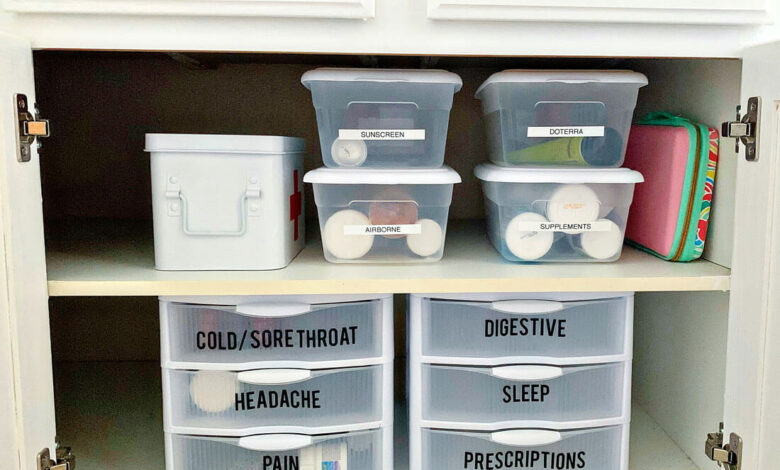How to Prevent Drug–Induced Injuries and Accidents

Drug –induced injuries and accidents refers to any injury, harm or death that occurs as a result of taking or using prescription medication, over-the-counter drugs, supplements or herbal medicines. The injury sustained can be a condition brought on by a serious reaction, side effect, or even death. Before any medication ever reaches the market for sale, it must be approved by the Food and Drug Administration (FDA).
However, sometimes defective medicines find their way through the system, reach the masses, and harm hundreds of people. Other times, the issue lies in the hands of improper or unclear warning labels or instructions that later cause harm. It’s also possible that the incident causing injury occurred at the pharmacy: medications were improperly handled; bottles were mislabeled, and so on.
Staying safe and avoiding many drug accidents and drug injuries means taking active steps any time a prescription or over-the-counter medication, or herbal and nutritional supplement is involved. While you cannot control the drug’s development, research, testing, or manufacturing process, you can control how you interact with all new medications. The best advice is to find the highest qualified professionals, get the best and most current information available, and make the most serious and well-considered decisions possible every time you take a drug into your body.
How to Prevent Drug –Induced Injuries and Accidents
The following tips will help you prevent drug induced injuries and accidents and their accompanying consequences and adverse effects:
- Get all your medicines from the same pharmacy: Mistakes can happen when medication histories are incomplete. Some drugs interact with each other or other foods/supplements in negative ways. If you don’t share everything you’re taking with your pharmacist, you could inadvertently put yourself at risk. With this knowledge, your pharmacist can head off potential problems that you might experience with medication use. Among others, these include:
- Adverse drug interactions
- Drug/food interactions
- Dosage mistakes.
A good way to keep you safe from harmful drug interactions is to always use one pharmacy or one pharmacy chain to fulfill all of your prescription medication. While it sometimes may be more convenient, for whatever reason, to use multiple drug stores or even online fulfillment centers, this effectively eliminates the chances that a pharmacist will be able to monitor all your medications for conflicts that may cause you harm. It is always a good idea to inform both your doctors and your pharmacist of all medications (both prescription and over-the-counter, as well as herbal and nutritional supplements), especially when filling a first-time prescription or beginning a new drug therapy.
Ask For Proven and Safer Drugs: Generally speaking, newer is better. A newer car may offer safety features or better fuel economy than an older model. A newer consumer product may do the same job cheaper, faster, and better than the products that came before. In the case of prescription drugs, however, newer is not always better. In fact, in some cases, it can be much worse. While new drugs can truly be lifesaving, sometimes the latest breakthrough drug turns out to be worse than older treatments or the disease itself. Despite the years of research required to get a drug approved, important risks can be missed. We have to rely on post-market surveillance to detect these risks.
With new regulations on how drugs are approved, many newer drugs have not been fully evaluated for their long- term side effects when they first come to market. In fact, some drugs are in their second or third year on the market before serious consequences of treatment begin to emerge in patients. Because of the shorter evaluation process, the best advice is to wait at least 2-3 years before starting prescriptions involving new-to-the-marketplace drugs.
It’s important to understand that there are times when a new drug, especially one that deals with an immediate life-threatening condition – a revolutionary cancer treatment drug, for example – should not be avoided. But “miracle” drugs are often few and far between. More often, a drug company is bringing a different variation of an existing treatment to market – often called a “me, too” drug. These newer, less-proven versions of effective well-proven drugs are the ones that should be generally avoided.
Always Discuss All Your Medications with Your Doctor: The correct use of a drug is determined by several important factors. The most significant of these is a correct diagnosis for the choice of the appropriate therapeutic approach. Most patients today realize the importance of taking an active role in their health care. This includes understanding their disease or condition as well as deciding on an appropriate treatment plan. But many people never consider the importance of asking questions about the medications their doctor is prescribing. But being informed about the drugs you are taking is an important part of managing your health care.
In fact, anytime your doctor writes a new prescription for you, you should ask a few questions before agreeing to take it. By doing so, you will not only better understand the medication you are taking and how to use it, but you also will learn why you need to take it and what to expect.
The most effective way of avoiding drug injury is discussing with every doctor you visit all of your medications including prescription, over-the-counter, as well as herbal and nutritional supplements. This is especially true before starting any new drug therapy. The best place to start is often with your primary care doctor, informing him/her of all of the drugs you are taking in order to make sure that there are no possible dangerous interactions with any new drugs you plan to take.
Patients taking several different prescriptions and a combination of other non-prescription drugs often have a difficult time remembering their exact medications and the dosages when at the doctor’s office. A good strategy is to bring all of your current medicines with you to the doctor or create and update a master list that inventories the brand name, dosage amounts and other key information. With an overview of all of your medications, your physician can then advise you on any potential drug interactions that might occur with the new drug you plan to take and help you avoid any unnecessary risk.
Avoid “Treating” Side Effects : Rather than consulting a doctor to receive a proper diagnosis and medical treatment of side effects, many people use additional drugs, supplements and other substances to try to cope with the symptoms they are experiencing. This practice can result in improper treatment of symptoms and conditions as well as potentially cause new conditions. Every meeting between you and your doctor may be the most important opportunity you have to avoid drug accidents and injury, because they are some of the rare times that you will have to discuss the possible side effects of each new drug you’re prescribed. Frequently, several side effects will accompany the use of certain medications; and if a physician does not have an accurate measure of what you are taking, then he/she will not be able to give a proper evaluation of the side effects of a drug. The danger is that a physician may end up prescribing medication to treat side effects of other medications. This side effect treatment may go on for months, even years, if the doctor-patient relationship is not fully defined within the context of medications a patient is taking.
If you do not keep your doctor informed of all the medical care and treatment you are receiving, and any change in your prescriptions of non-prescription drugs, you make it harder for that doctor to provide the quality, comprehensive medical care you want and need. Be very frank and open about all your medications with your doctor and avoid having your doctor writing new prescriptions to treat side effects of drugs that he/she doesn’t know you’re currently taking.
Research Your Prescription: All medicines have benefits and risks. Be sure you know what the side effects are of the medication as well as any interactions this drug may have with your current medications and supplements. Ask for your doctor’s or pharmacist’s help in determining whether the anticipated benefits outweigh any risks associated with this drug.
It also is a good idea to ask about any warnings associated with the drug as well as the most common side effects. Some drugs have proven over time to have a lot of adverse or dangerous effects. When this is the case, the drug is given what is called a Black Box Warning. This type of warning appears on a prescription drug’s label and is designed to call attention to serious or life-threatening risks.
A Black Box Warning is the strictest warning used by the FDA in labeling prescription drugs. It is used when there is reasonable evidence that there is a serious hazard associated with the drug such as serious injury or even death. As with any prescription, the risks versus the benefits should be weighed before taking the drug.
A good way of preventing drug injury is performing your own careful research on the new drug therapy that your doctor is recommending. This step is crucial. You should never start out on a new prescription without first having taken the time to properly investigate and acquire full up-to-date knowledge of the drug and its history for yourself. The easiest way to research a drug is to search online for the drug’s name and cross-reference it with the terms “safety risk” or “lawsuit.”





